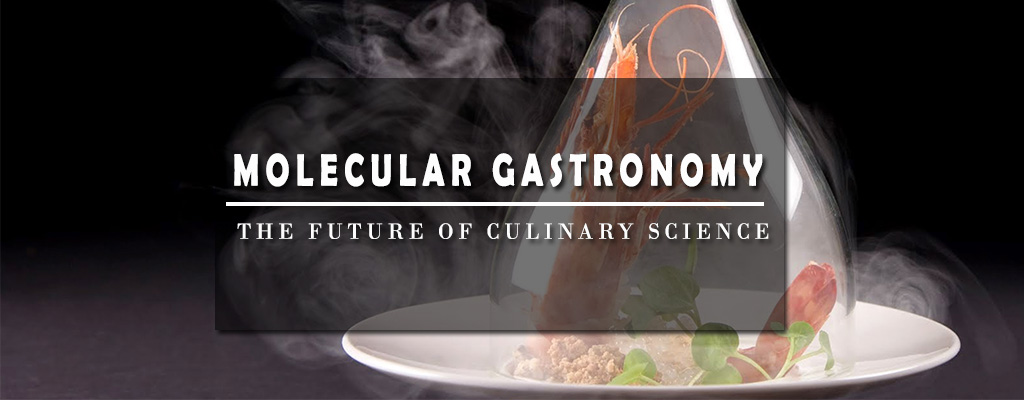Molecular Gastronomy – The Future of Culinary Science
What is molecular gastronomy?
Molecular gastronomy involves the study of physical and chemical transformation in food due to the various ingredients added to it during cooking. It is a modern way of cooking that paves way for scientific innovations in the art of cooking. It gives a magical modification to the taste and texture of food.
Molecular gastronomy is a discipline that emerged a long time ago. But the term officially was coined for the first time in 1988 by Nicholas Kurti, a Hungarian physicist and Hervé This, a French physical chemist. It is also known as ‘Modernist Cuisine’, ‘Progressive Cuisine’ or ‘Avant-Garde Cuisine’.
So the next time you go for a mousse, know that it is the foam added to it which makes it light, attractive and multi-flavored or if you go for a cup of hot maple ice cream, know that it is the added methylcellulose in it that uses the heat to prepare the tasty scoop of ice cream.
From the rabri foams to bananas foster, baked jalebi cheesecake or galouti kebab – Molecular gastronomy is the secret behind these popularly loved dishes.
 Advantages of molecular gastronomy –
Advantages of molecular gastronomy –
• Food retains its original ingredients and flavor.
• The food is not fried and that has obvious health benefits.
• It lowers the need to add salt or other ingredients to enhance the taste of the dishes. It also reduces fat and sugar intake. That reduces the risk of heart disease and high cholesterol.
• The food looks spectacular and appealing for it adds the ‘wow’ factor to it.
Is It Safe or Not?
Molecular gastronomy uses ingredients like liquid nitrogen, starch, gelatin, pectin, natural gums, meat glue, sugar substitutes and more. These are used as agents for thickening, gelling, freezing or to create foams or bubbles. The application of these ingredients is often questioned with regards to the impact they have on our heath. Is it safe to consume them with our food or not?
It is upon the chef to decide and check the quantity of the chemicals to be added or whether they are naturally procured or not. Otherwise, there can be serious health implications or side effects for consuming molecular gastronomy dishes.
A degree program on Culinary Science is hence important in today’s time for any professional chef. Cooking is not only about lighting the flame and stirring the ingredients anymore. It is about understanding the science behind adding each ingredient and determining the possible chemical reaction out of it.
iLEAD’s undergraduate degree course in
culinary science explores world’s popular cuisines, teaches the appropriate implementation of molecular science in food and also the nutritional attributes of various food ingredients.
If you are someone who aspires to make a career in the culinary industry, you ought to learn the science behind the art of food making. Because innovating or re-innovating dishes with changing times and preferences will go on but molecular gastronomy will continue to change the face of culinary art.


















0 Comment